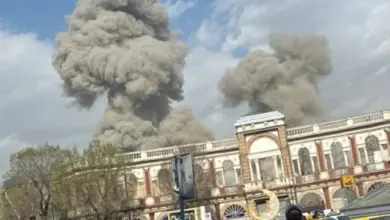
A group of activist journalists have highlighted human rights and legal violations involved in the detention of a photojournalist standing trial over violence-related charges since 2013.
Ahmed Gamal Zeyada, a reporter from the independent news network Yaqeen, was arrested over his alleged involvement in protests by pro-Mohamed Morsi students that escalated into multiple fires at al-Azhar University’s Faculty of Commerce in December 2013.
According to Journalists Against Torture, Zeyada, the trial of whom has been postponed several times by the Cairo Criminal Court, sustained multiple violations of his rights, including strip searches and baseless accusations of his affiliation with the Muslim Brotherhood, as well as taking part in burning down the faculty.
The group quoted Zeyada as saying that he was morally and physically tortured upon his arrest at the police station and later in Abu Zaabal and Tora prisons.
It added that authorities failed to investigate other violations, including the unsuitability of the detention facility where Zeyada had been remanded and the quantity of food he was given. It quoted him as saying that officers at the prison used to eat all the food his family brought him during their short visits.
Zeyada, quoted by the group, had been placed into a solitary cell “with no ventilation except through a small opening in its door, along with an empty can for defecation, a putrid water bottle, a piece of cheese and a crust of bread”. He added that three other inmates were crammed into the prison cell with him.
Several freedom advocates have decried what they view as a clampdown on press freedoms with the ouster of Morsi in July 2013.
In late 2014, Egypt was ranked by the Committee to Protect Journalists as the world’s sixth worst jailer of journalists. It was also categorized as unfree by the Freedom House report for 2014.
The Interior Ministry has consistently denied the torture of inmates inside Egyptian prisons.




